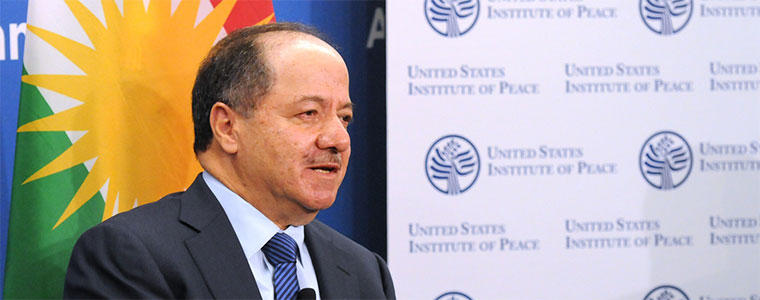President Barzani of Iraq’s Kurdistan Region
Ties With U.S., Baghdad, and the War Against ISIS
Read the Event CoverageOn May 6, 2015, the Atlantic Council and the U.S. Institute of Peace welcomed H.E. Masoud Barzani, President of the Kurdistan Region of Iraq on his first visit to the U.S. in three years. The President discussed on the challenges and priorities of Iraqi Kurdistan in the war against ISIS, the Kurdistan region’s relations with the U.S. and the future of the broader Middle East.

The Kurdistan Region of Iraq is fighting a full-fledged war against ISIS, while at the same time grappling with a refugee crisis and severe financial difficulties. The regional government’s complex relations with Turkey and Iran, as well as with the Iraqi central government, are problematic as well. The region has significant oil and gas wealth, yet has struggled to benefit from it because of disagreements with Baghdad over energy development strategy, revenue sharing, export policy, and other issues of state sovereignty.
President Barzani gave a keynote address followed by a moderated discussion.



